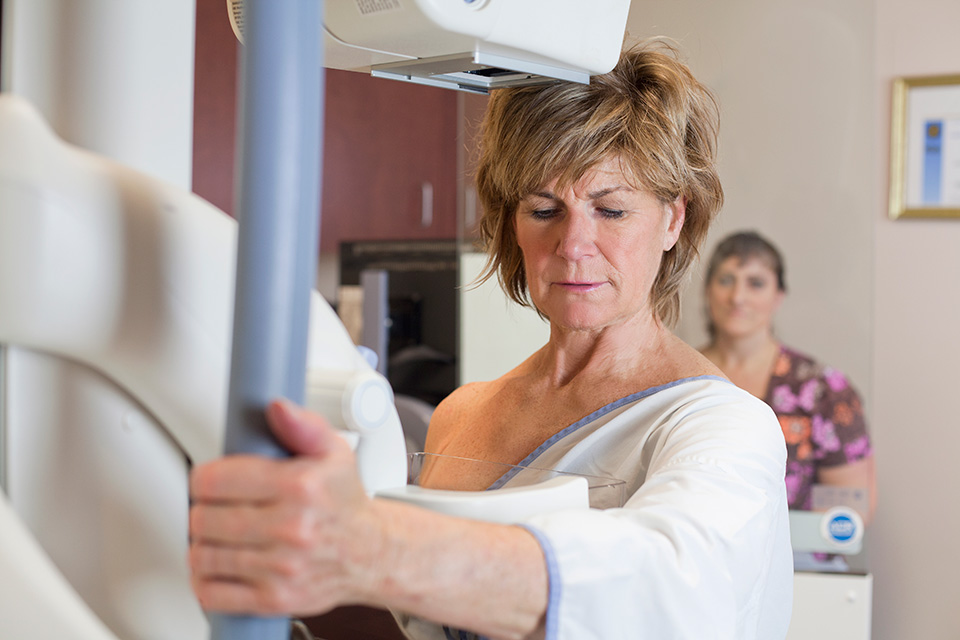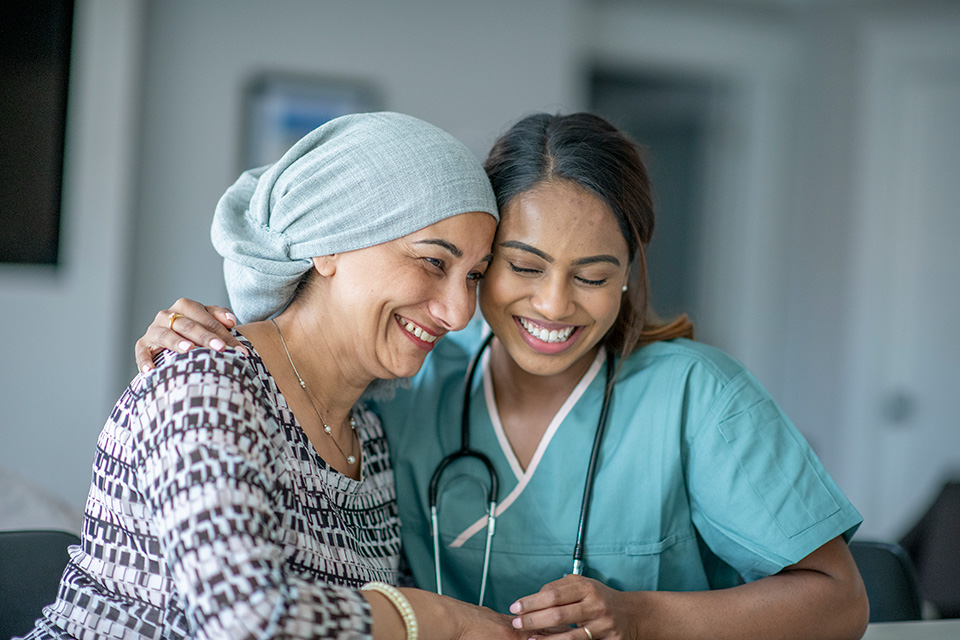Understanding a breast cancer diagnosis.
Your body is made up of millions of cells that grow, divide, and then lose function when they are no longer needed. Cancer develops when this cycle stops working as it should: the cells continue growing and dividing, and the older cells live longer than normal and cause problems. When this happens in the breast, it is called breast cancer.
Breast cancer can develop in different parts of the breast. Most begin in the lobules, which are the glands that produce milk, or the ducts, which are the tubes that carry milk to the nipple.
Breast cancer can be classified by the specific proteins found on the cancer cells. These details tell us what type of cancer you have and helps us decide on the best possible course of treatment.

We’ll work together to create a personalized treatment plan for you.
Your treatment begins with a precise diagnosis of your breast cancer, which may involve various diagnostic tests, including mammograms, biopsies, and imaging scans. From there, we’ll design a treatment plan that meets your specific needs. The latest treatments and technologies will be available to you, including targeted medicines, gene sequencing, surgery, chemotherapy, radiation, and hormone therapy.
We offer many resources to help you along the way.
Your personal care team will help you and your family with any physical, emotional, social, and practical challenges you may experience. Resources may include:
- A multispecialty team made up of healthcare providers from different specialties who work together to provide comprehensive and coordinated care. These specialists have knowledge and expertise in diagnosis, treatment, and management of breast cancer.
- A Nurse Navigator to help answer your questions and guide you through treatment and recovery.
- A social worker to help you navigate resources including support groups, financial assistance, and more.
- A library of content including information about your disease, and videos designed to help you and your family understand your diagnosis.
Emotional support in the form of individual, in-person and telehealth therapy sessions and local support groups.
- Transportation help to get to and from appointments, for those who qualify.
- Financial assistance may be available for those who need help paying for their care.
Your breast cancer care program
We are here for you no matter where you are in your breast cancer journey.
Whether you have just received your diagnosis, are in the middle of treatment, or have completed your course of treatment, there are many ways we can still support you and help you feel and do better. Please call us to make an appointment today.
Call us today for second opinions and referrals



